Compact Unit

YOUTH DAY (AGES 13–17)
(YOUTH AND LITERACY)
Sunday, April 7, 2013
Guest Writer for This Unit: J.C. Howard
Youth and Young Adult Pastor, Mt. Bethel Baptist Church, Ft. Lauderdale, FL
The unit you are viewing, Youth Day: Ages 13–17 (Youth and Literacy), is a compact unit. This means that it does not have a supporting cultural resource unit and worship unit. Instead, to enliven the imagination of preachers and teachers, we have provided scriptural text(s) that we suggest for this moment on the calendar along with a sermonic outline, suggested links, books, songs, and videos. For additional related information, see Youth Day: Ages 12–17 (Youth and Education) in the archives of the Lectionary for 2011. For general information on Youth Day, see the archives of the Lectionary for 2008–2012.
I. Description of the Liturgical Moment
Far too often in our churches is Youth Day regarded, by the dominant congregation (adults), as a time in which we gather on Sunday to just observe and celebrate the talents of our youth. In fact, youth leaders throughout the week prepare our youth to conform to the liturgical moment of our Sunday morning services. We, as the church, must realize that Youth Day can be far more beneficial than that. It should be a time in which we discover how concretely our youth have grown in their understanding of their relationship with Jesus Christ. It is a time when we assess, for better or worse, what we have and have not taught our children through our words and our deeds. It is a time when the adults in the village get to see up-close and personal our future and the work that we need to do to give teens the brightest future that God affords.
Yes, Youth Day should include the anticipation of watching our youth lead worship services, but what is more important is to find joy in unearthing of our young peoples’ demonstration of who God is in their lives. Youth Day is about how our churches educate and empower youth and the ways in which youth choose to express that education and empowerment. Most assuredly, the education and empowerment we speak of here is not rooted solely in the culture of the congregation, nor social culture, but it is above all things rooted in the Word of God.
Tyrone McGowan wrote in the 2011 African American Lectionary for Youth Day: Ages 12–17 (Youth and Education) commentary:
This liturgical moment calls for post-liturgical action. Youth Day should not be limited to a designated Sunday in which we put our young people on display, but rather it calls for the congregation to assess what our youth are learning biblically and socially in order to empower them holistically. Our action lay in the necessity of making our youth biblically literate, which translates into youth being rooted in the foundation of the faith and leads to a path of righteous living. It is the Word of God that informs the very nature of how we interact with the world, and this is the quintessential purpose of making certain that our children are biblically literate. It goes without saying that we must make sure that youth are also scholastically literate. We should also be just as emphatic in our determination that all of our teens will be biblically literate and high achieving scholastically. Teens who are highly literate biblically and in the school classroom are destined to succeed.
II. Youth and Literacy: Sermonic Outline
A. Sermonic Focus Text(s): Psalm 119:1-16 (New Revised Standard Version)
(v.1) Happy are those whose way is blameless,
who walk in the law of the LORD.
(v. 2) Happy are those who keep his decrees,
who seek him with their whole heart,
(v. 3) who also do no wrong,
but walk in his ways.
(v. 4) You have commanded your precepts
to be kept diligently.
(v. 5) O that my ways may be steadfast
in keeping your statutes!
(v. 6) Then I shall not be put to shame,
having my eyes fixed on all your commandments.
(v. 7) I will praise you with an upright heart,
when I learn your righteous ordinances.
(v. 8) I will observe your statutes;
do not utterly forsake me.
(v. 9) How can young people keep their way pure?
By guarding it according to your word.
(v. 10) With my whole heart I seek you;
do not let me stray from your commandments.
(v. 11) I treasure your word in my heart,
so that I may not sin against you.
(v. 12) Blessed are you, O LORD;
teach me your statutes.
(v. 13) With my lips I declare
all the ordinances of your mouth.
(v. 14) I delight in the way of your decrees
as much as in all riches.
(v. 15) I will meditate on your precepts,
and fix my eyes on your ways.
(v. 16) I will delight in your statutes;
I will not forget your word.
B. Possible Titles
i. An Education That Empowers
ii. The Greatest Treasure on Earth
iii. The True Key to Secular Success
C. Point of Exegetical Inquiry
Psalm 119:1-16 exalts the law of God. The law, in this text, can be understood as that which is found in Holy Scripture. In the first eight verses of this Psalm the writer glorifies God’s law, for they understand that it is the law of God which leads to upstanding living. Verses 5 and 6 read: “O that my ways may be steadfast in keeping your statues! Then I shall not be put to shame, having my eyes fixed on all your commandments.” There is a direct correlation here with keeping God’s law and righteous living. We must conclude that the only way to keep God’s law is to read and believe it, which is the prime objective of biblical literacy for Christian believers.
In verses 9-16, the writer shifts from the glorification of God’s law to the manner in which living according to God’s law is all beneficial. Verses 9 and 10 read: “How can young people keep their way pure? By guarding it according to your word. With my whole heart I seek you; do not let me stray from your commandments.” In the question of youth remaining pure, the writer answers declares that guarding purity is rooted in living according to God’s Word. Furthermore, the writer contends that seeking God with a whole heart (which is manifested in loving God) is directly correlated with keeping God’s commandments. The inquiry in the text is found in the connection between the depth of God’s law (Word) and its implication for righteous living. The writer of this Psalm helps us to see that joy can be found in living according to God’s law (Word), yet we must be biblically literate in order to experience this joy, even as youth.
III. Introduction
One of the goals of a Christian is to live a righteous life. The manner in which we are taught to do so can vary from church to church. Some churches convey the idea of righteousness through giving to charities and causes; others do so by showing congregants how to do good deeds. Some churches teach righteousness through books on ethics, while others simply convey their message through the fabric of their church culture. Yet there is a common denominator that connects all churches to the commission of righteousness, and that is the Word of God. It is in the Bible that we can find the blueprint for righteous living and the ways in which living righteously blesses the life of every believer.
On this day, we remind our youth that the church is the meeting place of our faith expression, but our lives serve as the constant display of faith in Christ, on a daily basis. This means that our youth should strive not only to live righteously but also to use Scripture as a guide to everyday righteous living.
We all are subject to make mistakes, but the good news today is that God is bigger than any mistake we ever make! Let us remain faithful to the task of reading God’s word in order that the success in our spiritual lives infuses itself into our daily interaction with the world. What we read in Scripture gives us a foundation for responding to whatever we encounter every day.
IV. Moves/Points
Move/Point One – Gladness is found in letting God govern.
We, as the children of God, can find comfort and joy in following God’s Word. It is His Word that God gives us as the blueprint for righteous and successful living, both spiritually and naturally.
a. Striving to keep God’s Word assists with guiltless living.
When we know we are doing all we can to live according to God’s Word, we don’t have to fall into unending guilt when we make a mistake. We should feel convicted when we sin, but we know that God honors our progress, and we can therefore learn from our mistakes and continue marching forward.
b. Joy is found in giving our entire selves over to God’s Word.
We cannot expect the rewards of joy if we do not follow God’s Word with our whole heart. This suggests that we have to love God and His Word when it is commending us and also when it reprimands us. If we diligently follow God’s blueprint, joy will meet us wherever we are in life.
c. It is easy to praise God when you can identify the movement of God.
How can we know when God is in the midst of our predicaments? We can know because we are biblically literate. The Bible helps us to understand the movement of God.
Move/Point Two – God’s governing is worth more than gold.
a. The innocence of youth is guarded by God’s guidance.
By understanding biblical principles, young people can be tempted but can conquer temptation. God’s Word gives youth conquering power.
b. Youth that have a guiding manual are built for success.
God’s Word, which serves as a guide for daily living, puts youth in position to succeed at anything.
c. Youth who know their worth stand out.
Youth who are biblically trained to believe that they are anointed and special in God’s eyes develop a confidence that helps them stand out anywhere. These youth are confident because their elevation does not rest on the decisions of others, but rather rests with God.
Move/Point Three – God’s Glory is manifested when we glean from His guidance.
a. Obedience to God’s Word is a high form of worship.
Every time youth adhere to a biblical principle, they are showing God that they trust His Word; this is a form of worship.
b. Our love for God is coupled with keeping His commandments.
The way we show God that we love Him is by reading and adhering to His commandments.
c. Lip service is not enough; we must act!
We cannot say we praise and worship God but then do not read and follow His Word. Praise and worship is a direct reflection of reading the Word and then living it out daily.
Celebration
What a mighty blessing to know that the God we serve is forever seeking to point us in the direction of spiritual and all types of success! If teens, as obedient disciples, are biblically aware of the promises God has made to us, they gain the ability to do all things through Christ! God always makes good on those things that He has guaranteed in the Bible! We can go through the Word of God and circle the promises God has made to us, and then stand on those promises believing that the Lord will make good on them in his perfect timing. The true path to societal success is by way of spiritual success, which is rooted in learning the Word of God.
Is there anyone here who can say, “It wasn’t until I knew what was in the Word that I knew what to praise God for?! It wasn’t until I knew what was in the Word that I knew that I was competent?! It wasn’t until I knew what was in the Word that I knew that I would succeed because God was on my side!” Thank you for being a God who is constantly guiding us through your Word!
V. Illustration
Listening Through the Storm
One day a father and his son traveled from Washington D.C. to Philadelphia, and on the journey headed back to D.C. a terrible stormed began to hover over them. As they drove out of Philly and into Delaware, a torrential rain began to fall and many people began to pull over. The son, who was driving, turned to his father and said, “Dad, do you want me to pull over?” and the father said, “Son, I think your visibility is ok; keep on driving.” As they exited Delaware and entered Maryland, the storm got worse and the rain fell even harder. The son looked at his father and said, “Dad, do you want me to pull over, now? Plenty of people are pulling over.” The father turned back to his son and said, “Son, I believe your visibility is still intact, please keep on driving.” Finally, as the son began to make his way through Baltimore the rain began falling in sheets and the son turned to his father a final time and said, “Dad, I know you see how hard this rain is falling. I think we should pull over.” The father looked at the son and said, “Son, I’m very tired. D.C. is a short distance away, and if you can see at all I want you to keep driving.” The son kept driving, and just as they were leaving Baltimore, the rain began to lighten up and the roads became clear again. The father then turned to the son and said, “Son, now I want you to pull over.” The son pulled over, turned to his father and said, “Dad, why pull over now? The weather has cleared up.” The dad said, “Son turn around. Do you see all those cars still pulled over on the side of the road?” “Yes, sir,” said the son. The father said, “If you would have pulled over back there, you would have still been in the storm, but because you kept moving forward, you can now look back and see what you came through.”
If teenagers listen to God, He will show them how to get through any storm. When they come out they’ll see what God has brought them through.
VI. Songs to Accompany This Sermon
A. Well-known Song(s)
- Jesus Be a Fence. Traditional
- Patiently Waiting. By Robert Bennix
- Stir Up the Gift. By Rudolph Stanfield
B. Modern Song(s) (Written between 2005–2012)
- Don’t Judge My Praise. By Malcolm Williams
- I Belong to You. By Hagan Anderson and William McDowell
- Faithful. By Phillip Feaster, Lehman Gray, Vashawn Mitchell, and Calvin Rodgers
C. Spiritual(s)
- Blessings in the Love. By Charlene Moore Cooper
- Rule of Life. Music by Edward Bonnemere. Arr. by Cynthia Wilson
- Jesus Wants Me for a Sunbeam. By Nellie Talbot
- He Who Began a Good Work in You. By Jon Mohr
D. Liturgical Dance Music
- The Prayers. By Paul D. Allen and James L. Moss
- Worshipper. By Canton Jones
E. Song(s) for the Period of Prayer
- Use Me. By DeWitt Jones III
- I Need You. By Stanley Adams, Adrian Anderson, Maria Mendez Grever, and Candice Nelson
F. Sermonic Selection(s)
- A Wise Man Built His House Upon the Rock. Traditional
- We Are Not Ashamed. By Andraé Crouch
G. Benediction Song(s)
- Highway to Heaven. Traditional
- Trust. By Carol Maillard
VII. Books to Assist in Preparing Sermons, Worship Services, and/or Sunday School Classes Related to Youth Day: Ages 13–17 (Focus on Literacy)
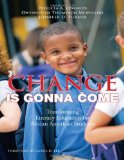 |
Edwards, Patricia, Gwendolyn Thompson McMillon, Jennifer D. Turner, and Carol D. Lee. Change Is Gonna Come: Transforming Literacy Education for African American Students. New York, NY: Teachers College Press, 2010. |
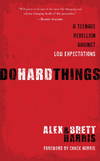 |
Harris, Alex and Brett. Do Hard Things: a Teenage Rebellion against Low Expectations. Colorado Springs, CO: Multnomah Books, 2008. |
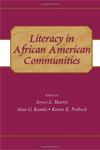 |
Harris, Joyce L., Alan G. Kamhi, and Karen E. Pollock. Literacy in African American Communities. New York, NY: Routledge, 2000. |
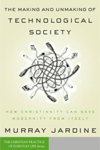 |
Jardine, Murray. The Making and Unmaking of a Technological Society: How Christianity Can Save Modernity From Itself. Grand Rapids, MI: Brazos Press, 2004. |
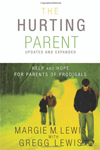 |
Lewis, Margie M. with Gregg Lewis. The Hurting Parent: Help and Hope for Parents of Prodigals. Grand Rapids, MI: Zondervan Press, 2010. |
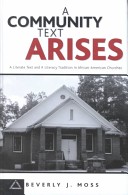 |
Moss, Beverly J. A Community Text Arises: A Literate Text and a Literacy Tradition in African American Churches. New York, NY: Hampton Press, 2002. |
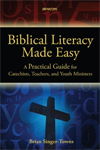 |
Singer-Towns, Brian. Biblical Literacy Made Easy: a Practical Guide for Teachers and Youth Ministers. Winona, MN: Christian Brothers Publications, 2008. |
VIII. Videos, Audio, and/or Interactive Media
- “Too Important to Fail” by Tavis Smiley. Online location:
http://www.pbs.org/wnet/tavissmiley/tsr/too-important-to-fail/ accessed 17 January 2013.
- The Young People’s Project, Math Literacy Program. Online location:
http://www.youtube.com/watch?v=mldkkOs27HA accessed 17 January 2013.
- Barry Shaefer on the cultural shift and renaissance of biblical literacy through youth Bible study. Online location: http://www.youtube.com/watch?v=bUtev6Pnv-A accessed 17 January 2013.
- Teen Economic Literacy Camp. Online location: http://www.youtube.com/watch?v=N45ZDexeSHM accessed 17 January 2013.
IX. Links to Helpful Websites for Youth Day (Ages 13-17) (Focus on Literacy)
- “The Education of African-American Youth: Literacy Practices and Identity Representation in Church and School” by Michelle M. Kelly. Online location: http://people.cohums.ohio-state.edu/selfe2/367/Readings/Kelly.pdf accessed 14 January 2013.
- “Early Literacy Skills in African-American Children: Research Considerations” by Julie Washington. Online location: http://www.appstate.edu/~koppenhaverd/rcoe/5710/read/africanam/washington01.pdf accessed 14 January 2013.
- Building a Bridge to Literacy. Online location: http://bridgetolit.web.unc.edu/ accessed 14 January 2013.
- The Algebra Project. Online location: http://www.algebra.org/ accessed 17 January 2013.
X. Notes for Select Songs
A. Well-known Song(s)
- Jesus Be a Fence. Traditional
Location:
Cleveland, James. We Remember…The King. Excelsior, MN: Liquid 8, 2004.
- Patiently Waiting. By Robert Bennix
Location:
Walker, Hezekiah. Family Affair. New York, NY: Verity, 1999.
- Stir Up the Gift. By Rudolph Stanfield
Location:
Pace, Joe & The Colorado Mass Choir. Best of Joe Pace & The Colorado Mass Choir. New York, NY: Verity, 2001.
B. Modern Song(s) (Written between 2005–2012)
- Don’t Judge My Praise. By Malcolm Williams
Location:
Bryant, Rodnie. Change of Seasons. Indianapolis, IN: Tyscot, 2005.
- I Belong to You. By Hagan Anderson and William McDowell
Location:
McDowell, William. Arise: The Live Worship Experience. New York, NY: Entertainment One, 2011.
- Faithful. By Phillip Feaster, Lehman Gray, Vashawn Mitchell, and Calvin Rodgers
Location:
Mitchell, Vashawn. Created 4 This. Brentwood, TN: EMI, 2012.
C. Spiritual(s)
- Blessings in the Love. By Charlene Moore Cooper
Location:
African American Heritage Hymnal. Chicago, IL: GIA Publications, 2001. #620
- Rule of Life. Music by Edward Bonnemere. Arr. by Cynthia Wilson
Location:
Zion Still Sings for Every Generation. Nashville, TN: Abingdon Press, 2007. #95
- Jesus Wants Me for a Sunbeam. By Nellie Talbot
Location:
African American Heritage Hymnal. #614
- He Who Began a Good Work in You. By Jon Mohr
Location:
Zion Still Sings. #98
D. Liturgical Dance Music
- The Prayers. By Paul D. Allen and James L. Moss
Location:
Moss, J. V4…The Other Side. Inglewood, CA: Gospocentric, 2012.
- Worshipper. By Canton Jones
Location:
Dominionaire. Atlanta, GA: CAJO Records, 2011.
E. Song(s) for the Period of Prayer
- Use Me. By DeWitt Jones III
Location:
Motor City Mass Choir. Shout in the House. New York, NY: Hosanna! Music, 1997.
- I Need You. By Stanley Adams, Adrian Anderson, Maria Mendez Grever, and Candice Nelson
Location:
Trin-i-tee 5:7. T57. Houston, TX: Music World Entertainment, 2007.
F. Sermonic Selection(s)
- A Wise Man Built His House Upon the Rock. Traditional
Location:
VeggieTales. More Sunday Morning Songs with Bob and Larry. Brentwood, TN: Big Idea Records, 2005.
- We Are Not Ashamed. By Andraé Crouch
Location:
Crouch, Andraé & His Disciples. Finally. Downers Grove, IL: CGI Records, 1990.
G. Benediction Song(s)
- Highway to Heaven. Traditional
Location:
African Children’s Choir. African Children’s Choir Live! In Concert—Because You Loved Me. London, UK: Pale Blue Ltd., 2007.
- Trust. By Carol Maillard
Location:
Sweet Honey in the Rock. Experience 101. West Chester, PA: Appleseed, 2007.



